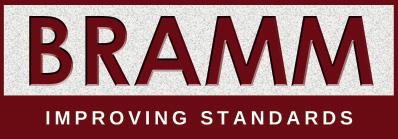The ICCM Journal | Autumn 2020 | V88 No. 3
5
in touch Another crazy few months have flown by and we continue to see unprecedented situations in the four nations of the UK. In recent days the issue of face coverings has been very much to the fore, with different approaches being adopted in the different nations. In all four nations it is compulsory for face coverings to be worn on public transport, but in Wales this has to be a 3 layer face covering whereas in the other nations it can be any type of face covering. In England and Scotland face coverings are mandatory in shops, whereas in Wales they are only advisory in public places if there are large crowds. Northern Ireland are currently considering whether face coverings should be mandatory in shops. But what constitutes a shop? In England, The Health Protection (Coronavirus, Wearing of Face Coverings in a Relevant Place) (England) Regulations 2020 defines a shop as “any building, room or other indoor establishment which is open to the public in whole or in part and is used wholly or mainly for the purposes of retail sale or hire of goods or services". The Regulations list a number of exemptions, which, interestingly, includes funeral director premises. Could a cemetery or crematorium chapel be considered a shop? After all, they are rooms and indoor establishments that are open to the public and used mainly for the purposes of retail sale (a burial or cremation) or the hire of goods or services (a funeral service). I’m using the issues around face coverings and how open to interpretation the regulations and guidance are, to illustrate just how difficult it has been to issue guidance to members throughout the Covid-19 pandemic. As soon as any new regulations or guidance is issued by the Governments, ICCM Officers devour it to try and make sense of it so that we can interpret it for our sector. We have to be very careful to ensure that any guidance we circulate is not in contravention of the Government’s guidance; at the start of the pandemic there was much confusion caused by badly worded regulations about crematoria having to close except for funerals, with different representative organisations offering differing advice to their members about whether associated burial grounds also had to close. That was a salutary lesson. Wherever possible the various organisations now check with each other before issuing guidance. Throughout the pandemic the ICCM Officers have also had contact with many members who have kindly shared their thoughts and experiences to help inform thinking and shape guidance. We would like to thank all those who contributed, whether it was through asking a question which caused us to think, or through providing accounts of first-hard experiences that formed useful learning points for sharing. At the time of writing, the worst of the first coronavirus wave is over, but there is talk of a second wave. There are concerns about the winter period, and whether a resurgence, coupled with the usual seasonal flu, will overwhelm the NHS. Although no firm figures have been provided, it is possible that the number of deaths may be higher than in the first wave (although there is some debate
as to what that figure actually is). Although there may be some doubt regarding the actual cause of death and whether Covid-19 was recorded correctly, we know that our sector dealt with roughly 61,000 excess deaths between March and June, with the peak being in April (44,000 more deaths than in April 2019). As a sector we coped really well with the extra demands, not just in terms of numbers but also the associated challenges of protecting ourselves, our families, our teams and those attending funerals, whilst continuing to provide the best level of care for bereaved people that we could under the circumstances. In some countries, including some in Europe, this hasn’t been the case and death care systems have been compromised or have collapsed. We can’t and won’t let that happen in the UK. You have all done (and I know you will continue to do) an amazing job, and although it doesn’t often get reported in the press, the UK Governments are aware of the important role that you play and are grateful for it. The ICCM Officers are continuing to work with allied organisations through the Deceased Management Advisory Group (DMAG) to ensure that lessons from the first wave are learnt, and that guidance is in place for dealing with any future outbreaks. Obviously, we are hoping that there won’t be a second wave, but hope isn’t enough and we have to start making plans in case numbers rise significantly again. Many thousands of families have been affected by restrictions on funerals during the Covid-19 period, and still continue to be. However, it has not all been negative. There has been much creativity in making funerals personal and meaningful; increased use of digital platforms such as webcasting, enabling people from all over the world who may not have been able to attend in person to attend virtually; a rethinking of what is important in marking the lives of those that have died. There has been a sharp rise in the number of people opting for a direct cremation. Whether this is a temporary or a permanent trend remains to be seen. What is clear, however, is that the time is ripe for exploring options for doing things differently. Do we need to keep following a Victorian funeral model, or a time-based system that suits a busy crematorium? Maybe at last bereaved people will find the voice that the ICCM Charter for the Bereaved tried to give them to express what really matters to them and how they wish to say goodbye and commemorate the lives of their family and friends. And finally, in answer to the question I posed in the first paragraph, no, a cemetery or crematorium chapel is not considered a shop and both are currently exempt from face covering requirements, as long as 2m social distancing can be maintained (this is the situation at the time of writing, but it could well have changed yet again by the time of publication so please don’t rely on this and check on the ICCM website or with the ICCM Officers!). Thank you. Julie Dunk ICCM Chief Executive















